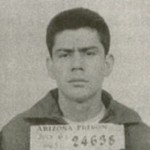SCOTUS to Address Requirements for Federal Murder Statute
Yesterday, the Supreme Court agreed to decide what “federal nexus” must be proven in a murder prosecution under 18 U.S.C. § 1512(a)(1)(C). The statute makes it a federal crime to kill “another person, with intent to . . . prevent the communication by any person to a law enforcement officer or judge of the United States of information relating to the commission or possible commission of a federal offense.” The specific question before the Court is whether a defendant may be “convicted of murder under § 1512(a)(1)(C) without proof that information regarding a possible federal crime would have been transferred from the victim to federal law enforcement officers or judges.” Additionally, the case presents interesting questions regarding the interpretation of statutory state-of-mind requirements and the scope of federal criminal jurisdiction.
The decision below was United States v. Fowler, 603 F.3d 702 (11th Cir. 2010). Here’s what happened.

